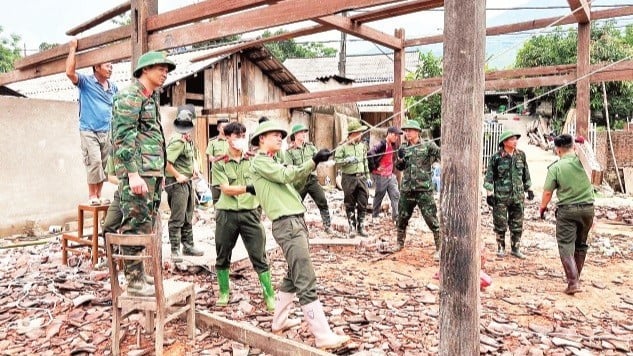
Besides military threats, there are many new factors threatening human security and national security such as: natural disasters, depletion of natural resources, terrorism, transnational crime, high-tech crime, finance, energy security, food security...
At the seminar "Improving the capacity of non-traditional security governance in the era of Vietnam's rise to global challenges", Director of the Institute of Non-Traditional Security, Professor, Dr. Nguyen Xuan Yem said: Non-traditional security is a security issue formed based on non-military impacts and risks.
There are about 30 non-traditional security threats, of which 5 risks need attention: Transnational crime; economic security with the risk of deviating from the development of a socialist-oriented market economy, reducing economic growth and falling into the middle-income trap; environmental security, water security associated with climate change and natural disasters; health security, health security related to the safety of medical facilities, population security, population aging, gender imbalance, food safety; threats to cyber security and social network security.
There are about 30 non-traditional security threats, of which 5 risks need attention: Transnational crime; economic security with the risk of deviating from the development of a socialist-oriented market economy, reducing economic growth and falling into the middle-income trap; environmental security, water security associated with climate change and natural disasters; health security, health security related to the safety of medical facilities, population security, population aging, gender imbalance, food safety; threats to cyber security and social network security.
(Director of the Institute of Non-Traditional Security, Professor, Dr. Nguyen Xuan Yem
In 2024, our country witnessed many non-traditional security risks. The 2024 cybersecurity survey report of the National Cyber Security Association showed that: Up to 46.15% of agencies and businesses were attacked by cyber attacks, with the total number of cyber attacks estimated at more than 659 thousand cases. Many very fierce cyber attacks targeted large economic groups such as VNDirect, PVOil, Vietnam Post and many medical and educational facilities. In particular, the recent attack at the National Credit Information Center (CIC) in September 2025 continued to show signs of increasing cybercrime appropriation of personal data.
In addition, on average, one in every 220 smartphone users falls victim to online fraud.
In recent times, under the leadership of the Party and the management of the State, the work of preventing and responding to non-traditional security threats has achieved some positive results. However, this work is still limited, especially in areas such as: Climate change, natural disasters, epidemics, and cyber security.
The reason is that the coordination between departments, ministries, branches and localities in preventing and responding to non-traditional security threats is not yet synchronous and close; international cooperation is not really effective; there is no overall framework strategy; there is no unified mechanism to coordinate and mobilize forces and means for prevention and response, leading to resource dispersion, even hindering the resolution and management process.
On May 22, 2025, the Prime Minister signed and issued Resolution No. 147/NQ-CP on the National Comprehensive Strategy for Prevention and Response to Non-Traditional Security Threats to 2030, with a vision to 2045.
This is a pioneering and breakthrough step, demonstrating the high political determination of the Party and State in proactively responding to global challenges, while contributing to enhancing Vietnam's prestige and position in the international arena.
The strategy sets out the general goal of unifying the awareness and actions of the entire political and social system in preventing and responding to non-traditional security threats; gradually improving the capacity to warn, forecast, and effectively manage risks; ensuring safety for people and society; and at the same time demonstrating Vietnam's responsibility to the international community.
At the National Conference on the implementation of Resolution No. 147/NQ-CP organized by the Ministry of Public Security, Prime Minister Pham Minh Chinh emphasized: The objectives of the Strategy must be specific, develop rapidly and sustainably; ensure security, safety and security of the people. The consistent viewpoint is "taking people as the center and subject", combining sustainable prevention with timely and flexible response; not allowing incidents to occur, in case of incidents, they must be handled quickly and effectively.
In reality, people and communities play a key role in preventing and responding to natural disasters. From proactively preventing floods and landslides to participating in supporting the recovery of consequences in affected areas.
With the motto of “4 on-the-spot”, early warning models, volunteer teams, and sustainable development projects implemented by the community have made an important contribution to improving resilience and adaptation capacity right from the grassroots. Raising community awareness also means further promoting the role of people in monitoring and reflecting on new risks and challenges.
It is predicted that the “war” against cybercrime will be long-term and complicated, posing many difficulties and challenges for the authorities. To gain the initiative in cyberspace, it is necessary to mobilize the combined strength of the entire political system, specialized forces and the entire population.
Along with technical solutions and perfecting the legal framework, propaganda and dissemination of cybersecurity knowledge to the community need to be promoted more than ever.
Equipping people with cyber defense skills is not only a challenge, but also a key to reducing the number of future victims.
Communication campaigns must aim for sustainable goals: Training critical thinking, information verification skills, and identifying fraudulent tricks, instead of just listing the forms of violations. Each citizen needs to become a “living shield” against the increasingly sophisticated problem of fake news and fraud.
Therefore, communication programs must be deployed regularly and continuously, with rich content and forms suitable for each target group; focusing on remote areas where people have limited digital skills and access to information.
To effectively deal with cybercrime, strengthening and modernizing specialized forces is an urgent requirement. The People's Public Security Force needs to continue to be built in a disciplined, elite, modern direction, capable of acting as the core in the fight against high-tech crime.
Focus on training a team of specialized staff on non-traditional security, build an inter-sectoral coordination mechanism from the central to local levels, ensure the principles of "three proactive" and "four on-the-spot", at the same time, strengthen international cooperation, actively participate in regional and global forums; share experiences, seek financial and technological support, and train human resources from countries and international organizations, in order to further improve the capacity to respond to the increasing non-traditional security challenges.
Source: https://nhandan.vn/nguoi-dan-la-chu-the-trong-ung-pho-cac-de-doa-an-ninh-phi-truyen-thong-post913004.html



![[Photo] Bustling Mid-Autumn Festival at the Museum of Ethnology](https://vphoto.vietnam.vn/thumb/1200x675/vietnam/resource/IMAGE/2025/10/4/da8d5927734d4ca58e3eced14bc435a3)

![[Photo] General Secretary To Lam attends the 8th Congress of the Central Public Security Party Committee](https://vphoto.vietnam.vn/thumb/1200x675/vietnam/resource/IMAGE/2025/10/4/79fadf490f674dc483794f2d955f6045)

![[Photo] Solemn opening of the 8th Congress of the Central Public Security Party Committee, term 2025-2030](https://vphoto.vietnam.vn/thumb/1200x675/vietnam/resource/IMAGE/2025/10/4/f3b00fb779f44979809441a4dac5c7df)
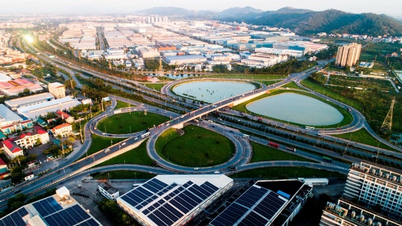
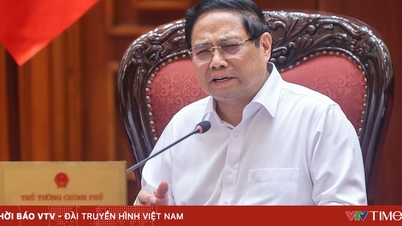

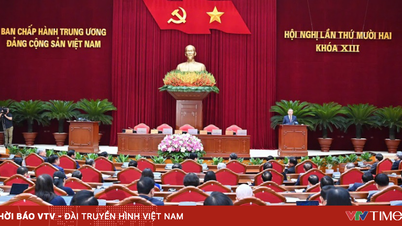
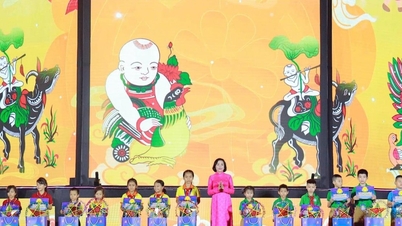

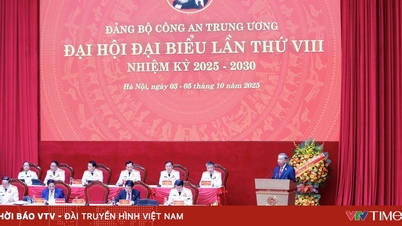






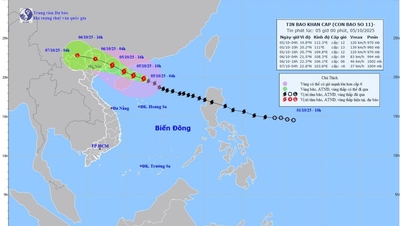

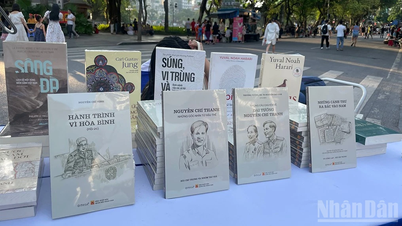

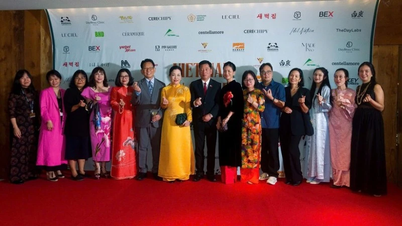


























![[VIDEO] Summary of Petrovietnam's 50th Anniversary Ceremony](https://vphoto.vietnam.vn/thumb/402x226/vietnam/resource/IMAGE/2025/10/4/abe133bdb8114793a16d4fe3e5bd0f12)

![[VIDEO] GENERAL SECRETARY TO LAM AWARDS PETROVIETNAM 8 GOLDEN WORDS: "PIONEER - EXCELLENT - SUSTAINABLE - GLOBAL"](https://vphoto.vietnam.vn/thumb/402x226/vietnam/resource/IMAGE/2025/7/23/c2fdb48863e846cfa9fb8e6ea9cf44e7)
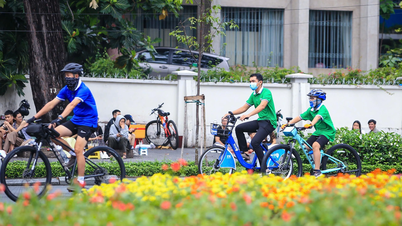















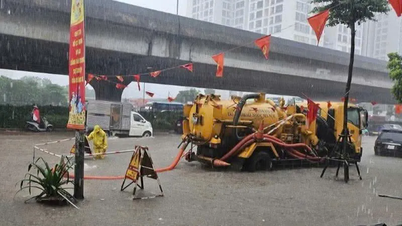







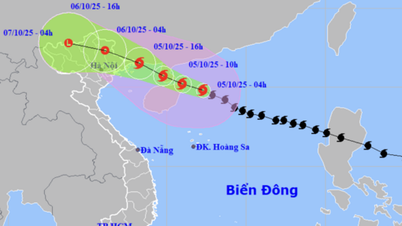

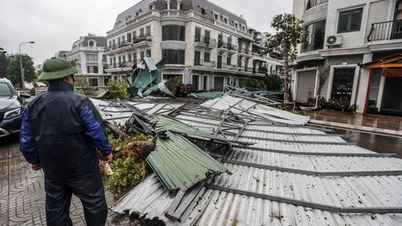









Comment (0)